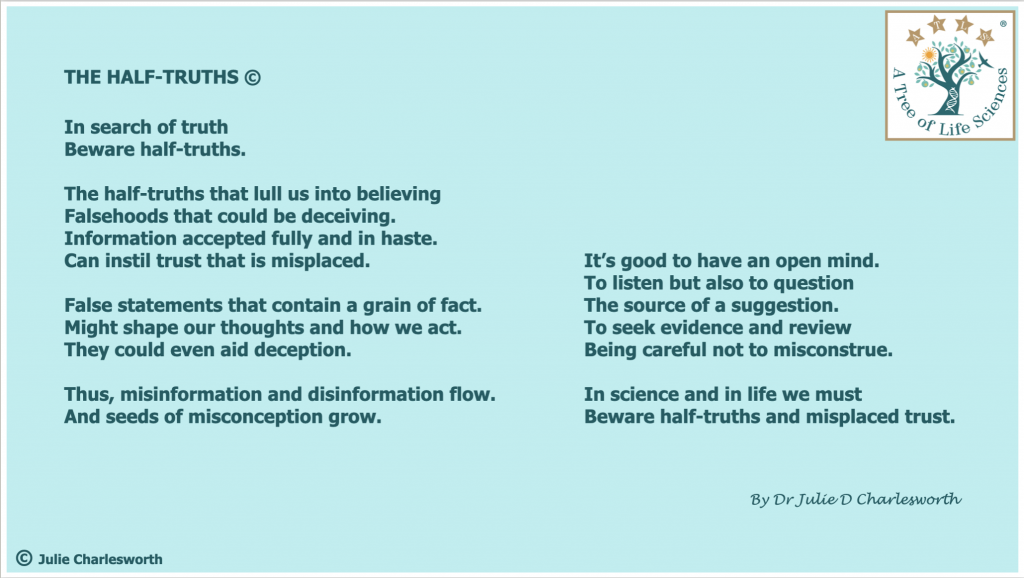In life generally we should be wary of half-truths. I think this can be especially important in science.
TRUTH. Thinking about truth brings to mind oaths such as ‘I promise to tell the truth, the whole truth, and nothing but the truth.’
HOME TRUTHS – ouch! Some people need to hear these (including ourselves sometimes) and can benefit from listening to feedback. Some feedback hits home whereas some can be dismissed for good reason.
HALF-TRUTHS. ‘In science and in life we must beware half-truths and misplaced trust.’ See the poem I wrote in 2023. It seems timely to share it again here.

TRANSPARENCY. One person’s idea of truth is not necessarily another person’s view. I think it’s best to know why something is considered as truth. For example, some factors and questions to consider:
Evidence-based findings.
Reproducibility of results using the same method of research/study.
Faith or a religious belief.
A hunch or a gut feeling
Told something is ‘common sense’ or so it may seem.
An opinion can be based on any of the above.
I’m interested in facts and feelings, seeking truths through science or sometimes through writing poetry.
by Dr Julie Charlesworth 03/09/2025

